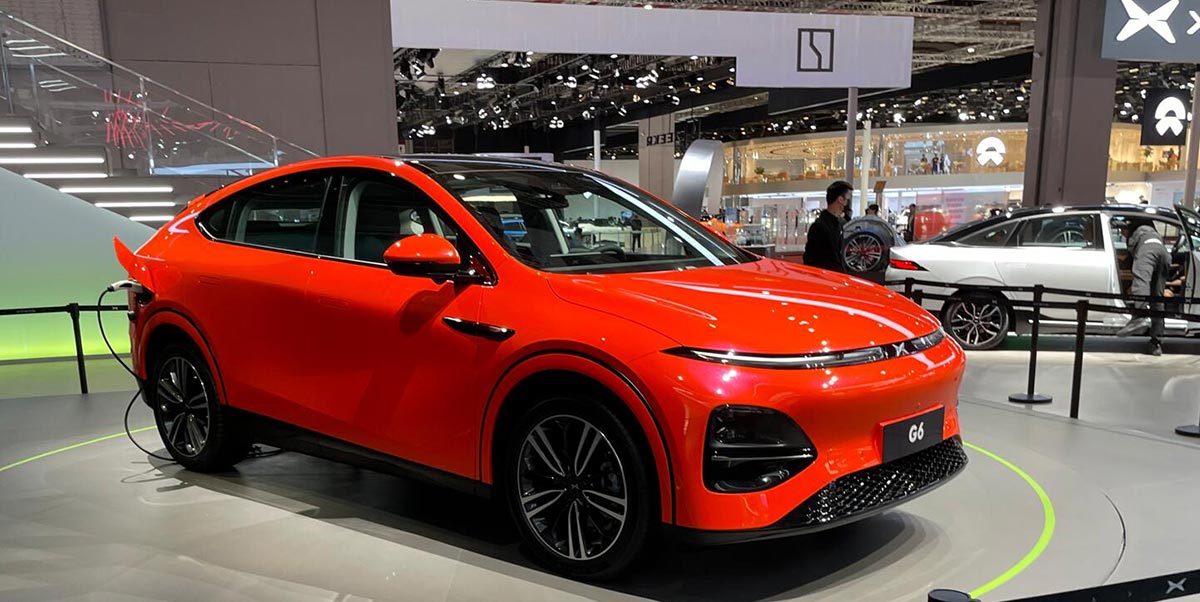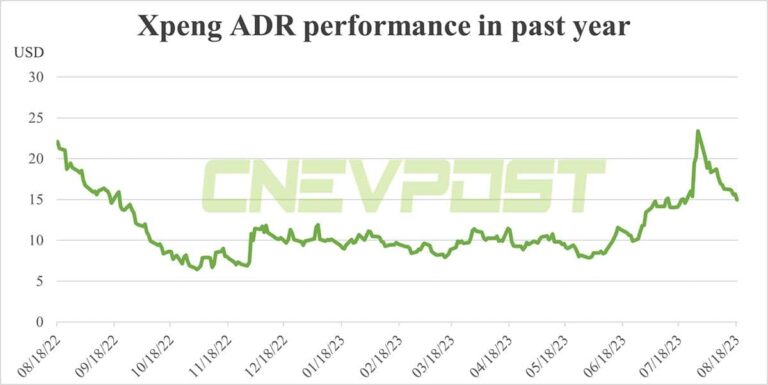The first model in the "Mona" program will be an A-class EV, to be launched in 2024 to expand into the popular RMB 150,000 segment.
(Image credit: CnEVPost)
Xpeng (NYSE: XPEV) is acquiring the electric vehicle (EV) business of Chinese ride-hailing giant Didi Global and will build on the partnership to launch a new brand next year, targeting markets with lower price points than Xpeng's current models.
Xpeng signed a deal with Didi on August 27, agreeing to acquire the assets of Didi's smart car development business, covering the research, design and engineering development of new smart EVs, for up to HK$5.835 billion ($744 million), according to a Hong Kong stock exchange announcement and a statement from the Chinese EV firm today.
Xpeng will issue class A ordinary shares, representing about 3.25 percent of the company's issued share capital upon completion, to acquire the assets related to Didi's EV program.
Didi will become a strategic shareholder of Xpeng with a lock-up period of 24 months after initial closing.
Xpeng plans to launch a new EV brand in 2024, currently being developed under the project name "Mona".
Xpeng will leverage the new brand to expand into the RMB 150,000 ($20,630) mass-market segment, and the "Mona" project will accelerate the company's production and sales growth and help realize greater economies of scale, the company said.
The first model in the "Mona" program will be an A-class smart EV, to be launched in 2024. The new model and brand will be distinct from the Xpeng branded products and the main brand.
Didi will provide support from its mobility ecosystem for the "Mona" project with access to its nationwide shared mobility market, paving the way for Xpeng to build a mass-market smart EV model in the RMB 150,000 price range, Xpeng said.
Xpeng's agreement with Didi will establish performance incentives based on the mass production of "Mona" and Didi's achievement of sales targets, and Didi will be entitled to receive share-based incentives.
Under the incentive program, Xpeng has set two performance target milestones, each with a maximum number of 180,000 eligible new vehicle deliveries.
If Mona sells 180,000 units a year for two consecutive years, Didi could receive the highest incentive for a total of 5 percent of Xpeng's equity, the EV maker's management said at a communication session.
Xpeng will be the first automotive manufacturer to be fully supported by Didi's ecosystem. The two companies will explore strategic cooperation in a number of areas including marketing, financial and insurance services, charging, Robotaxi, and international market expansion.
"Xpeng's A-class Smart EV products under the new brand will not only significantly increase our scale, but also accelerate the adoption of our Smart EV technologies in the mass market segment, bringing our technologies to a much broader customer base," said He Xiaopeng, Chairman and CEO of Xpeng.
"Xpeng has established its leadership position in the Smart EV technologies and intelligent driving technologies. We will continue to deepen our cooperation with Xpeng in multiple areas, driving transformation of the transportation and automotive industries," said Cheng Wei, chairman and CEO of Didi.
The deal with Didi appears to be an important move for Xpeng's Mr. He to realize his ambition of bringing high-level assisted driving capabilities to RMB 150,000-priced cars.
About 2 years ago, Mr. He said that no car company would be able to offer competitive self-driving features in the RMB 150,000 class because of cost. But now he has changed his view.
"As we implement technology innovation and cost reduction, I have seen a clear path and timeline that gives us great confidence in offering fully autonomous driving cars in the mainstream RMB 150,000 range," Mr. He said during an analyst call on August 18 after Xpeng reported its second-quarter earnings.
Xpeng's multiple cost reduction programs are moving forward efficiently and the company is confident of achieving its goal of reducing overall costs by 25 percent by the end of 2024, he said at the time.
"These cost reduction initiatives will result in significant improvement in our gross margins in 2024 while significantly improving the competitiveness of our products," Mr. He said at the time.
($1 = RMB 7.2709)

